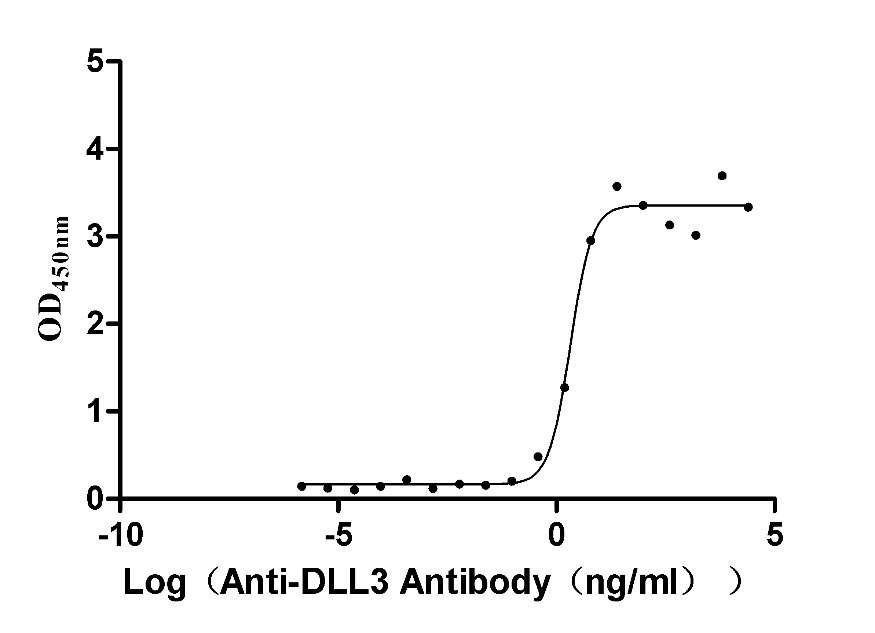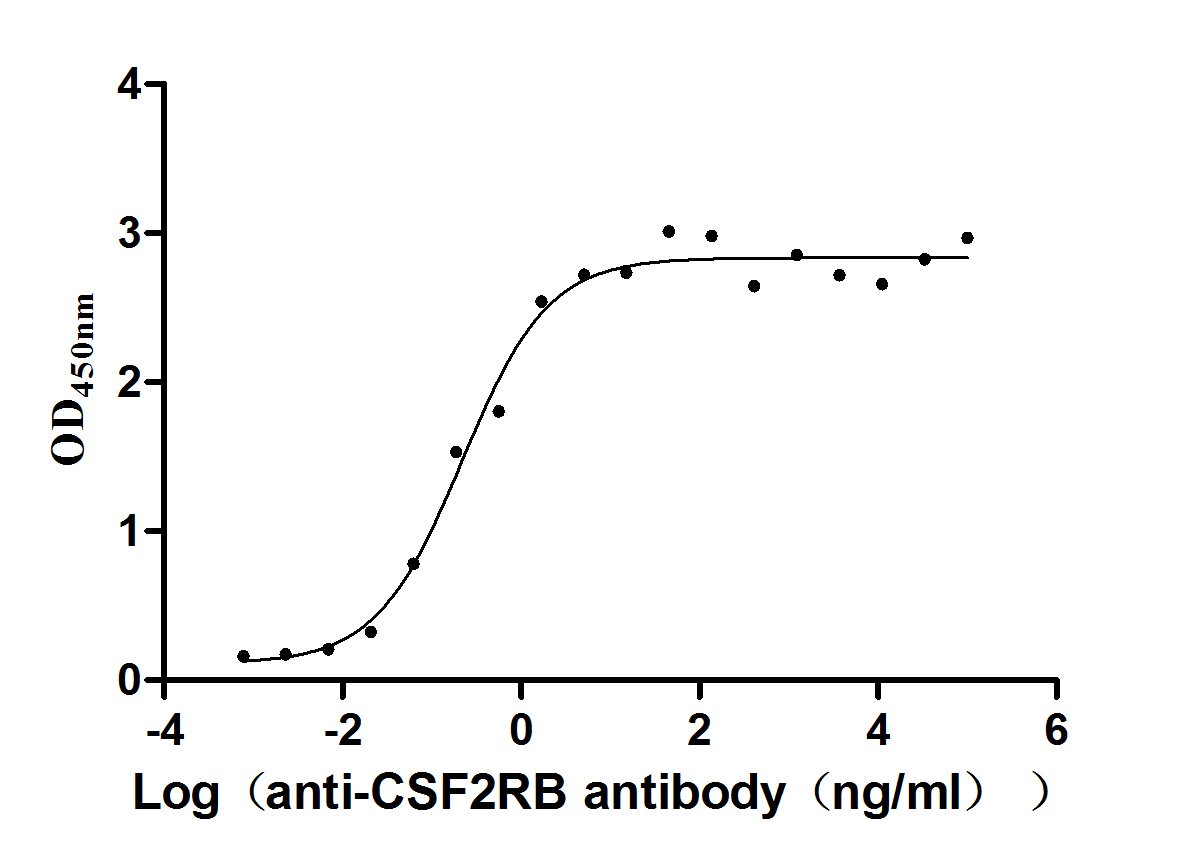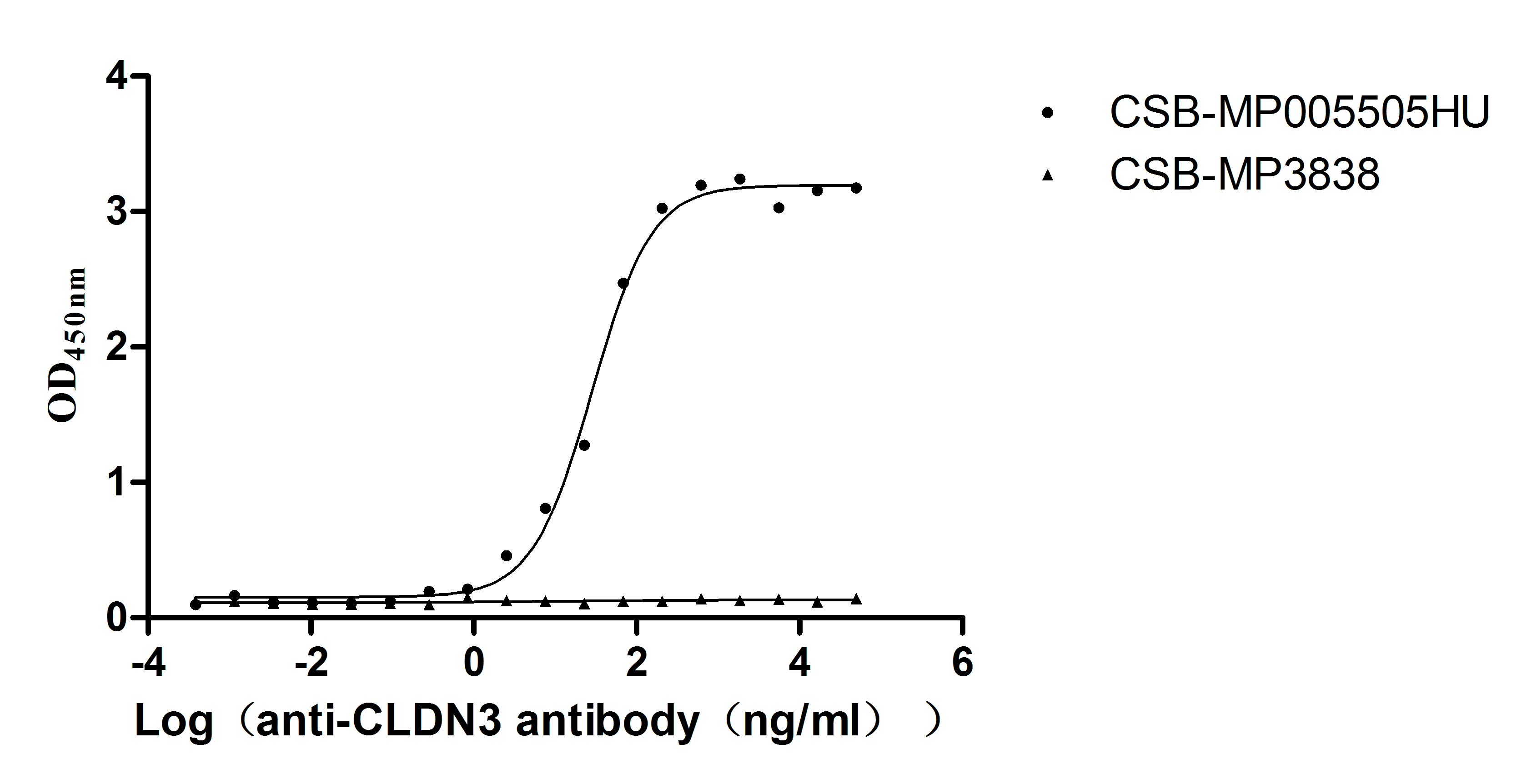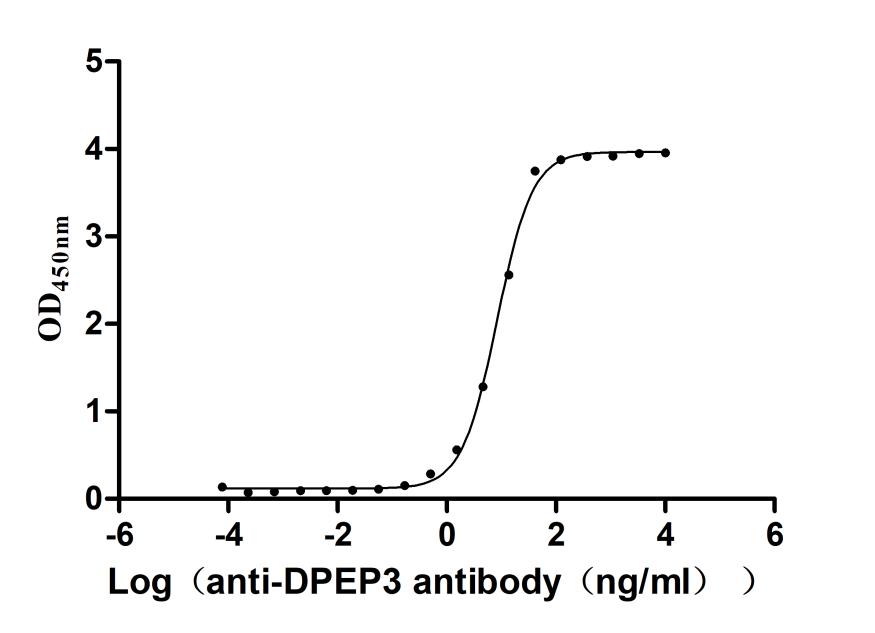Recombinant Mouse T-cell surface antigen CD2 (Cd2), partial
-
中文名称:Recombinant Mouse T-cell surface antigen CD2(Cd2),partial,Yeast
-
货号:CSB-YP004894MO1
-
规格:
-
来源:Yeast
-
其他:
-
中文名称:Recombinant Mouse T-cell surface antigen CD2(Cd2),partial,Yeast
-
货号:CSB-EP004894MO1
-
规格:
-
来源:E.coli
-
其他:
-
中文名称:Recombinant Mouse T-cell surface antigen CD2(Cd2),partial,Yeast
-
货号:CSB-EP004894MO1-B
-
规格:
-
来源:E.coli
-
共轭:Avi-tag Biotinylated
E. coli biotin ligase (BirA) is highly specific in covalently attaching biotin to the 15 amino acid AviTag peptide. This recombinant protein was biotinylated in vivo by AviTag-BirA technology, which method is BriA catalyzes amide linkage between the biotin and the specific lysine of the AviTag.
-
其他:
-
中文名称:Recombinant Mouse T-cell surface antigen CD2(Cd2),partial,Yeast
-
货号:CSB-BP004894MO1
-
规格:
-
来源:Baculovirus
-
其他:
-
中文名称:Recombinant Mouse T-cell surface antigen CD2(Cd2),partial,Yeast
-
货号:CSB-MP004894MO1
-
规格:
-
来源:Mammalian cell
-
其他:
产品详情
-
纯度:>85% (SDS-PAGE)
-
基因名:
-
Uniprot No.:
-
别名:Cd2; Ly-37; T-cell surface antigen CD2; LFA-2; LFA-3 receptor; Lymphocyte antigen 37; T-cell surface antigen T11/Leu-5; CD antigen CD2
-
种属:Mus musculus (Mouse)
-
蛋白长度:Partial
-
蛋白标签:Tag type will be determined during the manufacturing process.
The tag type will be determined during production process. If you have specified tag type, please tell us and we will develop the specified tag preferentially. -
产品提供形式:Lyophilized powder
Note: We will preferentially ship the format that we have in stock, however, if you have any special requirement for the format, please remark your requirement when placing the order, we will prepare according to your demand. -
复溶:We recommend that this vial be briefly centrifuged prior to opening to bring the contents to the bottom. Please reconstitute protein in deionized sterile water to a concentration of 0.1-1.0 mg/mL.We recommend to add 5-50% of glycerol (final concentration) and aliquot for long-term storage at -20℃/-80℃. Our default final concentration of glycerol is 50%. Customers could use it as reference.
-
储存条件:Store at -20°C/-80°C upon receipt, aliquoting is necessary for mutiple use. Avoid repeated freeze-thaw cycles.
-
保质期:The shelf life is related to many factors, storage state, buffer ingredients, storage temperature and the stability of the protein itself.
Generally, the shelf life of liquid form is 6 months at -20°C/-80°C. The shelf life of lyophilized form is 12 months at -20°C/-80°C. -
货期:Delivery time may differ from different purchasing way or location, please kindly consult your local distributors for specific delivery time.Note: All of our proteins are default shipped with normal blue ice packs, if you request to ship with dry ice, please communicate with us in advance and extra fees will be charged.
-
注意事项:Repeated freezing and thawing is not recommended. Store working aliquots at 4°C for up to one week.
-
Datasheet :Please contact us to get it.
相关产品
靶点详情
-
功能:CD2 interacts with lymphocyte function-associated antigen CD58 (LFA-3) and CD48/BCM1 to mediate adhesion between T-cells and other cell types. CD2 is implicated in the triggering of T-cells, the cytoplasmic domain is implicated in the signaling function.
-
基因功能参考文献:
- Ptpn22 and Cd2 Variations Are Associated with Altered Protein Expression and Susceptibility to Type 1 Diabetes PMID: 26438525
- CD2 stimuli were mandatory for Treg cell survival with reduced Bim expression, but CD2 may not function as a direct receptor for molecules on stromal cells. PMID: 23278598
- CD2 is important for the efficient development of CD4 single-positive thymocytes and TCR-dependent activation of mature CD4 lymph node T cells, but does not direct a particular helper T cell subset polarity. PMID: 11801645
- This antigen is a dominant target for heart allograft responses. PMID: 12201362
- molecular mechanism of heterophilic adhesion between the murine T-cell adhesion glycoprotein CD2 and its ligand CD48 PMID: 12356317
- Despite normal T cell numbers, mice deficient in the costimulatory molecules CD2 and CD28 spontaneously develop Pneumocystis carinii pneumonia. PMID: 12902500
- autoimmunity may be mediated by a combination of genes in the SLAM/CD2 family cluster PMID: 15589166
- Analysis of the ligand-receptor pairs involved in induction of germline transcripts (Igamma2a) necessary for switch recombination revealed that expression of CD48 on B cells and ligands CD2 and CD244 on NK cells are able to stimulate Igamma2a PMID: 15778370
- CD2 deficient mice are more resistant to T. gondii infection than wild type mice PMID: 17696249
- nanoscale increases in CD2-CD48-mediated intermembrane spacing decrease adhesion and reorganize the immunological synapse PMID: 18826951
- CD244 inhibition and activation depends on CD2 and phospholipase C-gamma1 PMID: 19586919
显示更多
收起更多
-
亚细胞定位:Cell membrane; Single-pass type I membrane protein.
-
组织特异性:Detected in thymus and spleen.
-
数据库链接:
KEGG: mmu:12481
STRING: 10090.ENSMUSP00000029456
UniGene: Mm.22842
Most popular with customers
-
Recombinant Human Tumor necrosis factor ligand superfamily member 8 (TNFSF8), partial (Active)
Express system: Mammalian cell
Species: Homo sapiens (Human)
-
Recombinant Macaca fascicularis Delta-like protein 3 (DLL3), partial (Active)
Express system: Mammalian cell
Species: Macaca fascicularis (Crab-eating macaque) (Cynomolgus monkey)
-
Recombinant Human Cytokine receptor common subunit beta (CSF2RB), partial (Active)
Express system: Mammalian cell
Species: Homo sapiens (Human)
-
Recombinant Rat Intestinal-type alkaline phosphatase 1 (Alpi) (Active)
Express system: Mammalian cell
Species: Rattus norvegicus (Rat)
-
Recombinant Human Claudin-6 (CLDN6)-VLPs (Active)
Express system: Mammalian cell
Species: Homo sapiens (Human)
-
Recombinant Human Claudin-3 (CLDN3)-VLPs (Active)
Express system: Mammalian cell
Species: Homo sapiens (Human)
-
Recombinant Macaca fascicularis Dipeptidase 3(DPEP3) (Active)
Express system: Mammalian cell
Species: Macaca fascicularis (Crab-eating macaque) (Cynomolgus monkey)
-
Recombinant Human Tumor necrosis factor ligand superfamily member 15(TNFSF15) (Active)
Express system: Mammalian cell
Species: Homo sapiens (Human)






-AC1.jpg)


-AC1.jpg)










